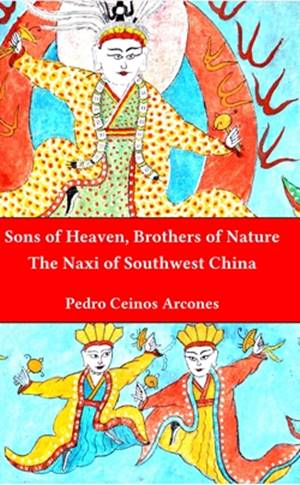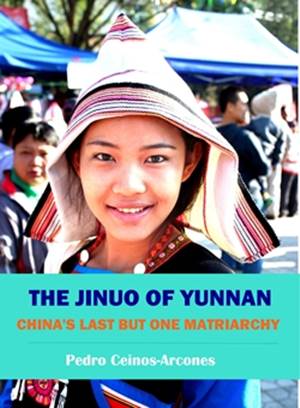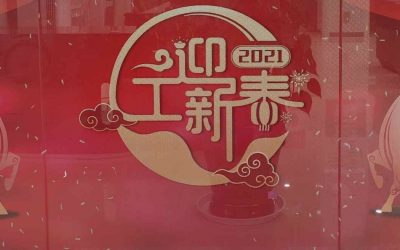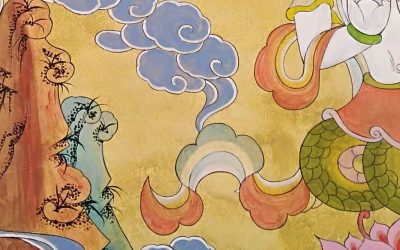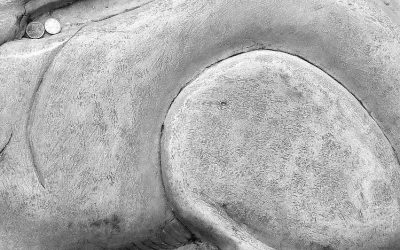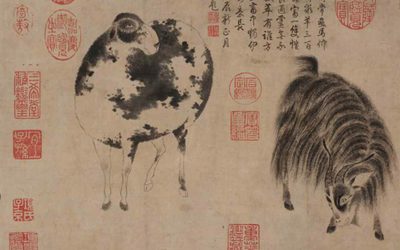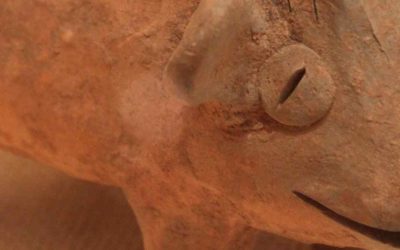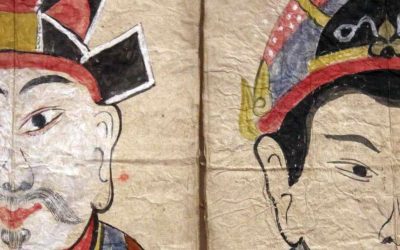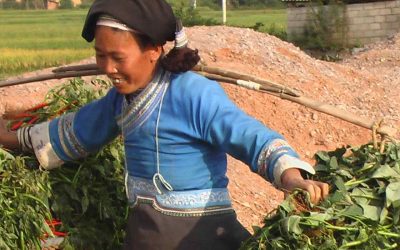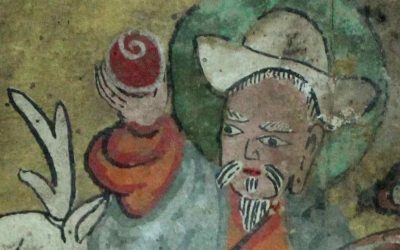Peter Harvey. Buddhism: Teachings, History and Practices. Cambridge University Press. 2013.
(Excerpts from the book. Page 11 and ff.)
In its origin, Buddhism was a Samana-movement. Samanas were wandering ‘renunciant’ thinkers who were somewhat akin to the early Greek philosophers and mystics. The Samanas rejected the Vedic tradition and wandered free of family ties, living by alms, in order to think, debate and investigate. The main Samana groups of Buddha’s time were:
JAINS
Jainism was founded, or at least led in the Buddha’s day, by Vardhamāna the Mahāvīra, or ‘Great Hero’. It teaches that all things, even stones, are alive, each containing a Jīva, or ‘Life-principle’. These are seen as individually distinct, rather like the Western idea of a ‘soul’ but unlike the universal Ātman of the Upanisads, and to be naturally bright, omniscient and blissful. The aim of Jainism is to liberate one’s Jīva from the round of rebirths by freeing it from being weighed down by an encrustation of karma, seen as a kind of subtle matter. The methods of doing so are primarily austerities such as fasting, going unwashed and pulling out the hair, so as to wear out the results of previous karma, and self-restraint, total non-violence to any form of life, and vegetarianism, so as to avoid the generation of new karma. The free-will of the Jīva is emphasized, though even actions such as unintentionally killing an insect are held to generate karma.
AJIVIKAS
Their founder was Makkhali Gosāla (Skt Maskarin Gośāla). Gosāla’s key doctrine was that niyati, or impersonal ‘destiny’, governed all, such that humans had no ability to affect their future lives by their karma: actions were not freely done, but were determined by niyati. Gosāla thus believed in rebirth, but not in the principle of karma as that which regulates the level of a person’s rebirth. The ‘Life-principles’ of living beings are driven by niyati alone through a fixed progression of types of rebirths, from a low form of animal to an advanced human who becomes an Ājīvika ascetic. The Ājīvikas practised rigorous asceticism such as fasting, nakedness and perhaps also disfiguring initiations, and aimed to die by self-starvation (as Vardhamāna in fact did), as a fitting way to end their last rebirth.
MATERIALISTS
The Materialists’ aim was to lead an abstemious, balanced life which enjoyed simple pleasures and the satisfaction of human relationships. They denied any kind of self other than one which could be directly perceived, and held that this was annihilated at death. They therefore denied the idea of rebirth, and also those of karma and niyati. Each act was seen as a spontaneous event without karmic effects, and spiritual progression was not seen as possible.
SKEPTICS
The Skeptics responded to the welter of conflicting theories on religious and philosophical issues, and the consequent arguments, by avoiding commitment to any point of view, so as to preserve peace of mind. They held that knowledge on such matters was impossible, and would not even commit themselves to saying that other people’s views were wrong. The Buddha saw this evasive stance as ‘eelwriggling’, though he shared the wish to step aside from the ‘jungle’ of conflicting views, and avoid dogmatic assertions built on flimsy grounds.
More posts on Chinese culture
Kyzil Grottoes – Primitive Buddhist art on the Silk Road
The Kyzil Grottoes - Primitive Buddhist art on the Silk Road The Kizil Grottoes are located on the cliffs of Minya Dag Mountain facing the Muzhati River, 7 km southeast of Kizil Township, Baicheng County, and about forty-three kilometers west of present-day Kucha,...
All you need to know about the ox in the Chinese horoscope
All you need to know about the ox in the Chinese horoscope The ox is a very beloved animal among the Chinese, despite its size, it is tame and peaceful, often in the villages, it is the youngest children who take it to the field to play, it rarely acquires the fierce...
The snake in the Chinese horoscope
The snake in the Chinese horoscope The snake is an ambiguous animal in the collective image of the Chinese people. On the one hand, it is considered similar to the dragon. Many Chinese authors recognize that the dragon, nonexistent, is nothing more than the...
The Rabbit in the Chinese horoscope
The Rabbit in the Chinese horoscope The rabbit is a tender and adorable animal, which highlights its extraordinary fertility, perhaps that is why in the Chinese horoscope is the animal most closely related to the moon, the female star par excellence. This...
The goat in the Chinese horoscope
The Goat in the Chinese horoscope The goat and the sheep are confused in the symbolism of Chinese culture, as both are written with the Yang character 羊, specifying that the sheep gives wool (绵羊) and the goat lives in the mountain (山羊), in general, both have an...
The Pig in the Chinese horoscope
The Pig in the Chinese horoscope The pig in Chinese culture is an ambiguous character. It is seen as fat and ugly, feeding on the dirtiest things, but at the same time, its meat is the most appetizing for the Chinese. His meat is "meat" in general, as an archetype of...
More posts on China ethnic groups
The Landing Yao Ancestral Festival of July
The Landing Yao Ancestral Festival of July All around China, the seventh month of the lunar calendar is known as the month of the ghosts, because in this month is celebrated the Mid-Year Festival. The Mid-Year Festival has nowadays many variations and it includes a...
We are lucky- A list of free books about the Zhuang
Free books about the Zhuang Fortunately for the lovers of the Zhuang nationality culture and language, there are some books, freely available to all the interested readers. Here, there is a list of the books we know are in this moment free to read and/or download....
The world of Naxi nationality Dongba deities
The Naxi people believe that every object, animal, plant, or natural phenomena has its own spirit. In the Dongba scriptures more than 2,400 spirits can be found. The sky, earth, sun, moon, mountains, water, wind, and even stones are all believed to be animate and...
The Bulang, aborigines of Yunnan
The Bulang are one of the oldest populations in the Southwest of Yunnan Province. They are considered one of the aboriginal inhabitants of this province, where they could have lived for more than two thousand years. They inhabit this mountainous region that forms the...
To marry a goddess in Yunnan (Jinuo nationality)
Pedro Ceinos-Arcones. China's last but one matriarchy: The Jino of Yunnan. 2018 Jinuos’ main religious specialists are bailabao, mopei and zhalai or Blacksmith. The oldest man of the main clan in the village is called zhuoba or mother of the village; the oldest of the...
Childbirth in Naxi culture
The rituals performed at birth suggest that in the Naxi traditional thought the entering of the Sv life god in a person is a gradual process developed during the last term of pregnancy and the first days of life, and that this process is considered complete in a first...


